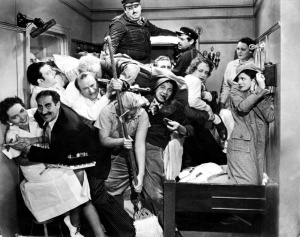Networking tips to help you shmooze like a pro
26 Friday Sep 2014
Written by Charles Harris in Networking
Tags
NETWORKING TIPS
Writers, whether screenwriters or novelists, are always being told to network.
From Cannes to Raindance, London Book Fair to Frankfurt, there are always more events, festivals and MeetUps to give us a chance to meet the one person who can make our (writing) dreams come true. But it can be a jungle out there.
Here are some networking tips to help make the most of this challenging pursuit of the holy grail.
1. Networking is not selling.
Don’t make the mistake of getting the two confused. Networking is making friends, extending your range of contacts. You wouldn’t make a new friend by immediately trying to selling something, so don’t use networking events to pitch.
Look out for open workshops and events where you can learn something and meet people at the same time – both those on the panel and other participants. You’ll often find that people relax more at such times. And fellow writers can be as usefully supportive over time, and as good a source of information, as big name producers. Often more so.
2. Enjoy the process
So you can relax. Take the long term view. Spend time finding out about people. Concentrate on how you can help them, not how they can help you. A career is for life: I have industry contacts who I’ve met regularly (say) at Cannes or in London, and swapped gossip. One day something might develop, or it might not. No sweat.
3. Always carry business cards
Offering your business card is a great way to get theirs! They may not keep yours, but you now have their contact details. The moment they’re out of sight, write down key details on the back of their card. At a busy event you may gather a dozen or more cards, and I guarantee you’ll forget who half of them were a day later.
Your own cards should be simple and, er, businesslike. This is not the time to show off your two dozen fonts and that silly picture a friend took of you last year. You don’t want to be remembered for your car-crash card design, but for your brilliant scripts. And, by the way, make sure that the back of the card, at least, is white. So that they can write down something memorable about you.
4. Be interested in them
Don’t just show interest – actually be interested. Even big name producers and directors like to be treated like human beings rather than targets, to be offered a drink or for you to listen to them talk about something they care about.
And if they’re focused on something else, don’t be pushy. If they don’t want to talk, that’s fine too – politely walk away.
5. Follow up contacts
Again you don’t have to sell anything, but send a brief email saying how nice it was to meet. And another maybe in a few months time, picking up perhaps on something they said. Maybe you’ve found that obscure book they mentioned, or remembered that they said. Keep the contact going if it feels right, but don’t stalk! Remember, you’re in this for the long term.
And when you do have a project that you are sure is right for them, go for it.
More reading
Jaws in Space: Powerful Pitching



4 Comments
August 8, 2020 at 7:45 pm
So glad you didn’t suggest networking at the bar! I think your suggestion is best advise.
August 9, 2020 at 7:00 pm
Hahaha! I have to say I’m not a great fan of the bar, but it works for many people.
May 18, 2023 at 6:15 am
How can adopting a long-term perspective, focusing on building relationships, and prioritizing helping others contribute to a fulfilling and successful career?
May 19, 2023 at 11:50 am
I have to say that I think it’s essential. I don’t know of any career that doesn’t benefit from helping others, except possibly dictator or hermit. But it’s particularly crucial for anyone in the arts, especially writing.